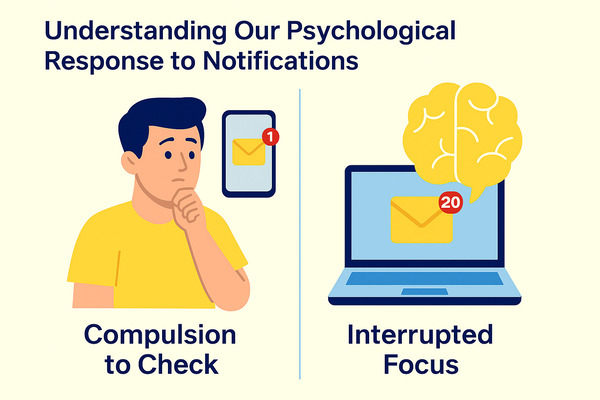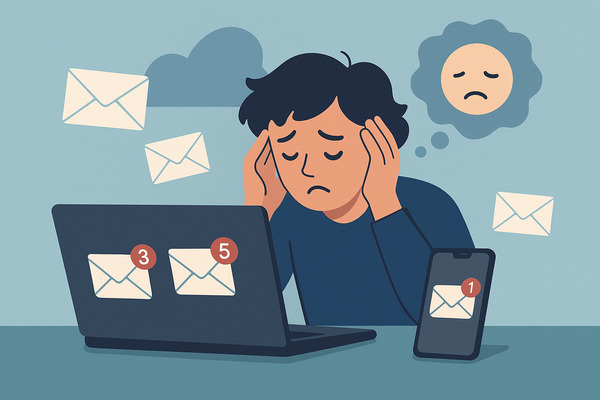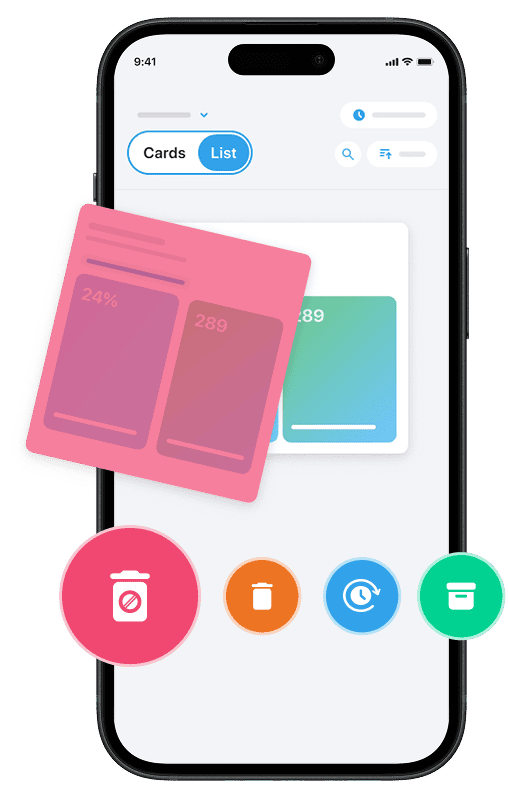Email overload has become a widespread issue in the modern workplace, impacting your productivity, stress levels, and overall well-being. The constant stream of emails arriving in your inbox, combined with the expectation to respond promptly, creates interruptions and cognitive fatigue that can be truly overwhelming.
As unread messages accumulate, you might feel frustration, anxiety, or even guilt about delaying responses or ignoring emails. Addressing email overload goes beyond just organizing your inbox—it’s an essential step in balancing communication demands, reducing mental stress, and achieving a healthier work-life balance.
By understanding the psychological reasons behind why email overload feels so overwhelming, you can take control and implement effective email management strategies. These tools and practices will help you reclaim your time and restore your peace of mind.
And one great way to prevent email overload is by keeping your inbox completely free from spam — and you can do that easily with our Cleanfox platform, 100% free.
Understanding Our Psychological Response to Notifications
The Compulsion to Check
When your phone or computer alerts you to new emails, a powerful psychological urge to check your inbox is triggered. This compulsion stems from the brain’s reward system, which releases dopamine when you see new messages. This creates a feeling of instant gratification, making it rewarding to quickly glance at your email inbox. Understanding how to stop checking your inbox all the time can help you break this cycle and minimize disruptions caused by constant notifications. However, this automatic behavior often leads to frequent interruptions throughout your day, fragmenting your focus and reducing productivity.
Constantly attending to these notifications, especially during work, fosters a sense that you must always be available and responsive. This makes it increasingly challenging to manage your email overload effectively.

Anxiety and the Fear of Missing Out (FOMO)
Beyond the compulsion, anxiety plays a significant role in why ignoring emails feels so difficult. Many people experience FOMO—the Fear of Missing Out—which amplifies their stress about potentially overlooking important messages or opportunities.
This anxiety can lead to frequent checking of multiple email accounts or even social media platforms, further increasing the volume of unread emails and messages demanding attention. The anticipation of negative consequences from not responding immediately intensifies this cycle, causing mental strain and making it harder to disconnect or set specific times to check your inbox. Developing digital healthy habits that improve focus and wellbeing can be instrumental in counteracting this cycle and restoring balance to your daily routine.
The Role of Social Norms and Expectations
Professional Obligations
In the workplace, social norms and professional expectations significantly shape how you handle your emails. These norms often contribute to feelings of guilt when messages are left unanswered. Many companies expect employees to respond within 24 hours, creating an unspoken rule that encourages constant checking and quick replies.
This pressure to conform to expectations can lead to an “always on” mentality, making it challenging to establish boundaries between work and personal time. Such a culture not only increases the volume of emails you feel compelled to address but also blurs the lines of work-life balance, intensifying the stress caused by email overload. Clear communication about acceptable response times and aligning expectations with your team can help alleviate this burden. However, setting healthy digital boundaries with your inbox is equally important to ensure a manageable workflow and reduce email anxiety effectively. These ingrained social norms often remain a persistent aspect of workplace behavior.
Personal Guilt
Outside of professional obligations, personal guilt plays a significant role in why ignoring emails feels uncomfortable. Many individuals hold themselves to high standards for responsiveness, fearing that delayed replies may disappoint colleagues, harm reputations, or disrupt teamwork.
This self-imposed pressure can heighten the emotional impact of a crowded inbox. Even with strategies like setting designated times to check emails or using management tools, the sight of unread messages alone can trigger feelings of guilt.
Such feelings often arise from internalized social norms surrounding politeness and dependability, where prompt communication is equated with respect and professionalism. Overcoming personal guilt requires a deliberate effort to redefine good communication and to acknowledge that prioritizing your time and mental health is just as important.
Impact of Guilt on Productivity and Mental Health
Say goodbye to spam, clutter, and chaos.
Our smart email cleaner filters out junk, organizes your inbox, and helps you focus on what really matters.
✅ Block spam automatically
✅ Organize emails by priority
✅ Keep your inbox clean
✅ Clean old emails you don’t read
📱 Available on the App Store and Google Play.
The Paradox of Counterproductivity
The guilt you feel about ignoring emails doesn’t just weigh on your conscience—it often makes it harder to manage your workload and stay productive. This paradox arises because the pressure to respond creates cognitive overload, slowing your decision-making and ability to focus on important tasks. The more you feel compelled to clear your inbox, the more you may slip into multitasking, which, despite appearances, actually reduces productivity and increases stress.
Research shows that email overload—and the associated guilt—can erode job satisfaction, lead to decision fatigue, and contribute to higher levels of anxiety and burnout. Over time, this chronic stress can spill into your personal life, disrupting sleep, weakening your immune system, and even increasing the risk of depression.
In severe cases, this cycle can lead to a significant drop in self-esteem and confidence, especially if you perceive your failure to “keep up” with email as a personal shortcoming.
Strategies for Mitigation
Fortunately, recognizing the psychological toll of email guilt is the first step toward reclaiming your productivity and mental health. Setting boundaries—such as specific times to check your inbox—can reduce interruptions and help you manage email overload more effectively. Learning to delegate, use email management tools, or batch-process messages can also help you regain control and reduce the volume of unread emails accumulating each day.
Cultivating realistic expectations for response times—both for yourself and your colleagues—can alleviate guilt and support a healthier work-life balance. Most importantly, acknowledging that it’s okay to step away from your inbox, to skip main content when it’s not urgent, and to prioritize your well-being over immediate replies will help you stay focused and reduce stress over the long run. Sometimes, the best way to boost your productivity and mental health is to recognize that managing your email, not letting it manage you, is a skill worth valuing.
Conclusion
To overcome email overload and the guilt of ignoring messages, it’s important to understand the psychological triggers behind your reactions and the social pressures that shape your behavior. Keep in mind that constantly checking your inbox can reduce productivity and negatively impact your mental health. By setting clear boundaries, adopting effective email management strategies, and adjusting expectations, you can significantly reduce stress and regain control over your time. keeping your inbox clean and organized can play a valuable role in reducing clutter and improving focus.
Take action today by managing your email inbox thoughtfully—this small but meaningful shift will enhance your productivity, support your well-being, and restore balance between work and life.
FAQ
Why do people feel guilty when they ignore emails?
People often feel guilty about ignoring emails because not responding can be perceived as rude or inconsiderate. This is particularly true in professional environments where timely replies demonstrate conscientiousness and respect. Ignoring emails may evoke feelings of personal or social guilt, as individuals feel a sense of responsibility to communicate and worry about disappointing others.
How does email overload affect our mental health and productivity?
Email overload can have a significant impact on mental health by increasing stress, anxiety, and cognitive overload. This often leads to decision fatigue and decreased productivity. Additionally, it disrupts work-life balance and diminishes job satisfaction, ultimately affecting overall well-being and mental health due to distraction and emotional strain.
What psychological mechanisms contribute to the stress caused by a large volume of emails?
The stress associated with managing a large volume of emails is primarily caused by cognitive overload, decision fatigue, frequent interruptions, and task switching. These factors drain mental energy and impair focus, triggering anxiety and a heightened sense of urgency. Over time, this can result in emotional strain, burnout, and reduced job satisfaction. The subjective feeling of being overwhelmed further amplifies perceived stress.
What strategies can help reduce the guilt and anxiety associated with managing emails?
To alleviate guilt and anxiety related to email management, you can implement the following strategies:
- Inbox Zero: Aim to keep your inbox empty by processing emails promptly.
- Mindfulness: Engage in breathing exercises or meditation to reduce stress.
- Email Batching: Group similar emails and handle them together to maintain focus.
- Set Realistic Expectations: Prioritize important messages and establish achievable response times.



